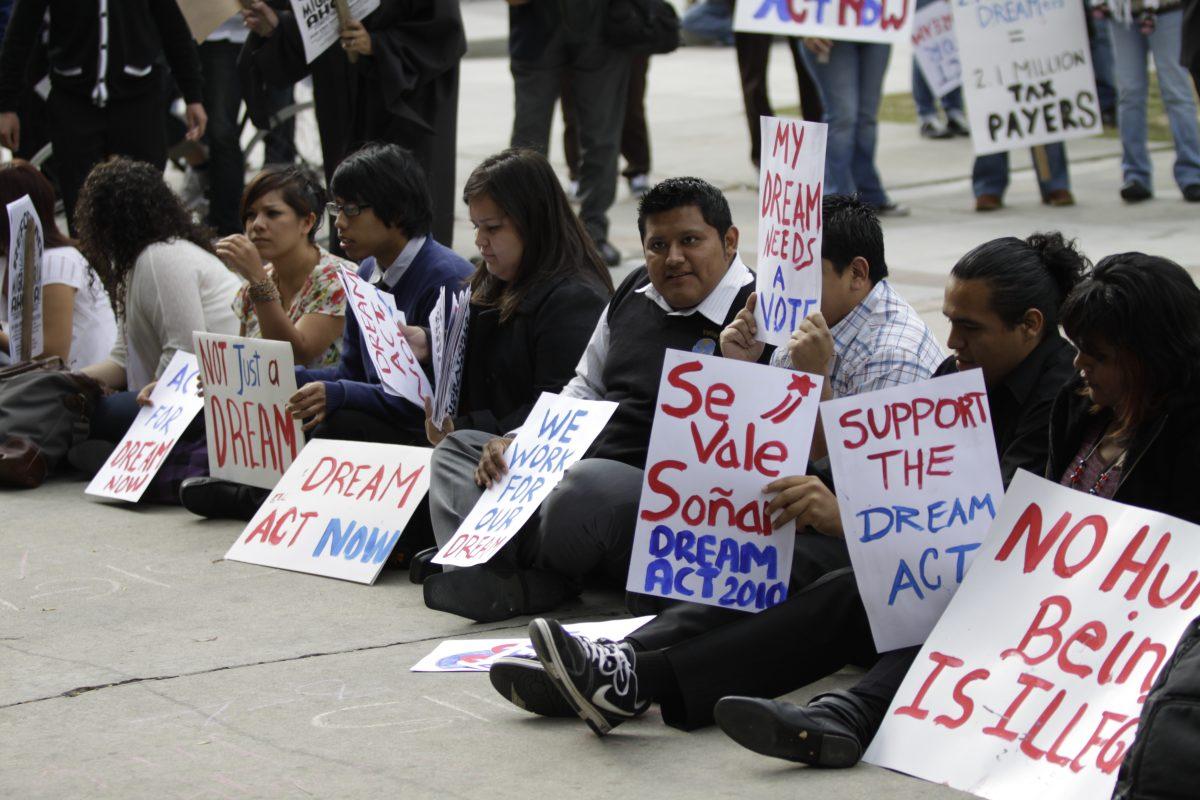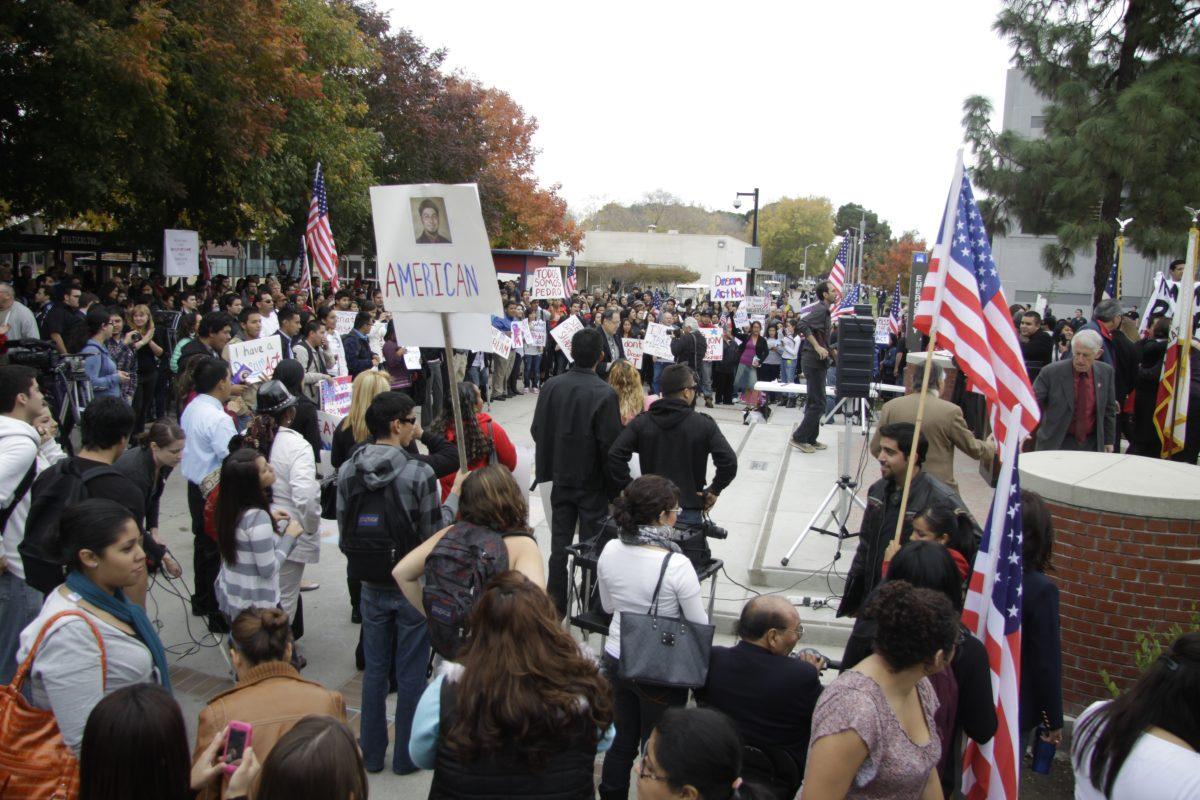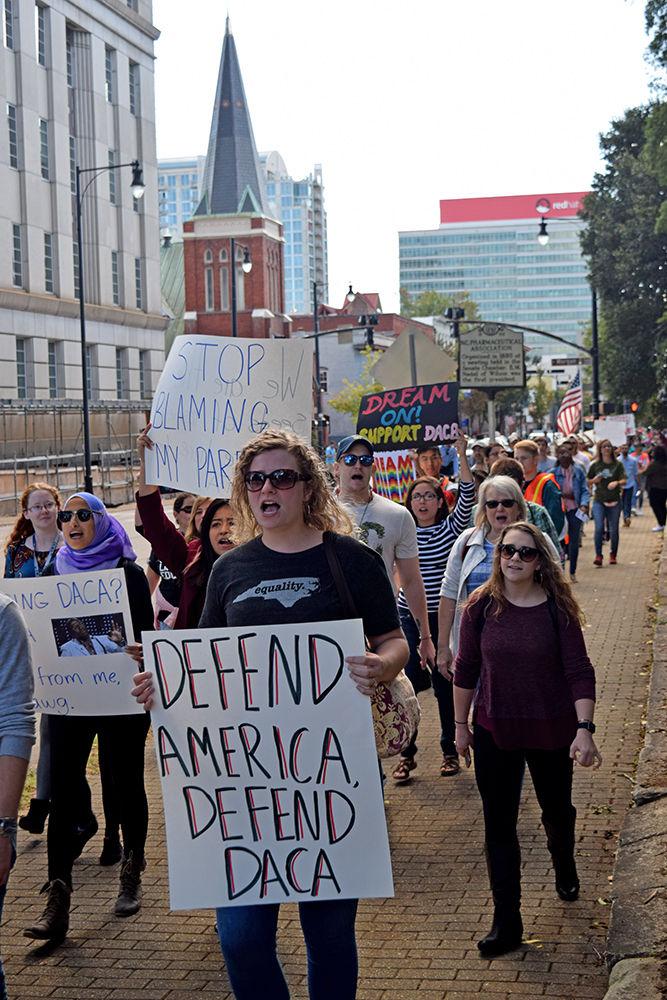Erika Cervantes, a sophomore at Meredith College, heard good news Tuesday after the White House stated DREAMers may earn citizenship on a faster track than other undocumented immigrants.
However, reform tastes bittersweet to Cervantes, a Mexican undocumented immigrant who has been in the United States for 12 years. If Obama has his way, Cervantes would receive citizenship before her father, who has worked here for more than 20 years.
“Any feeling of getting closer to citizenship is a victory,” Cervantes said. “But the fact that I will become a citizen before the rest of my family doesn’t make me happy. For me, my family is everything, and once I have citizenship, I will support them.”
DREAMers, undocumented-immigrants in college or the Armed Forces, will receive an expedited path to citizenship, according to the president’s parameters of “commonsense” immigration reform. These immigrants earned their name after the DREAM Act, a bill that would legalize undocumented students, failed in 2010. Sen. Kay Hagan (Dem-N.C.) provided the final vote needed to kill the bill, sparking protests across the state.
Cecilia Muñoz, director of the White House Domestic Policy Council, said President Barack Obama wants Congress to act swiftly — in the next four to six weeks — to draft a bipartisan bill.
The president did not include the detail on DREAMers in his speech about immigration reform last week in Las Vegas, Nev., leaving undocumented-immigrant students in North Carolina discouraged.
Even now, América Moreno, a sophomore at Meredith, said she won’t be fooled into lifting her hopes.
“I was really disappointed that the DREAM Act failed [in 2010], especially since North Carolina voted against it,” Moreno said after Obama’s Jan. 29 speech. “Even in Obama’s speech, he said there would be a path to citizenship, but I’d be put at the back of line. I’m tired of waiting.”
Muñoz clarified during Tuesday’s press conference that the president is trying to handle reform with a greater sense of urgency than he did in his first term.
“He wants this to be done expeditiously,” Muñoz said Tuesday. “He welcomes the work of a bipartisan group, but he also makes it clear that principles are not a bill. [The reform will grant] folks who would have qualified for the DREAM Act an expedited path to citizenship … they won’t be at the back of the line.”
Immigration reform may have come too late for María Ramírez, a former sophomore in computer engineering at N.C. State. Ramírez, like all undocumented immigrants who must pay out-of-state tuition in North Carolina, had to discontinue her studies this semester to take on a job.
Though DREAMers have endured a decade of political inaction, Cervantes said she has seen change in the past months and hopes for more.
For instance, a Homeland Security memorandum called Deferred Action for Childhood Arrivals has allowed immigrants older than 21 to apply for drivers’ licenses. Now with comprehensive reform under way, Muñoz said she can afford patience.
“Deferred action was the first grain of sand for us, and now with this news, that [DREAMers] will be prioritized, it’s a small win.”
Demonstrators show their support for the DREAM Act at Fresno State University, Nov. 19, 2010.








